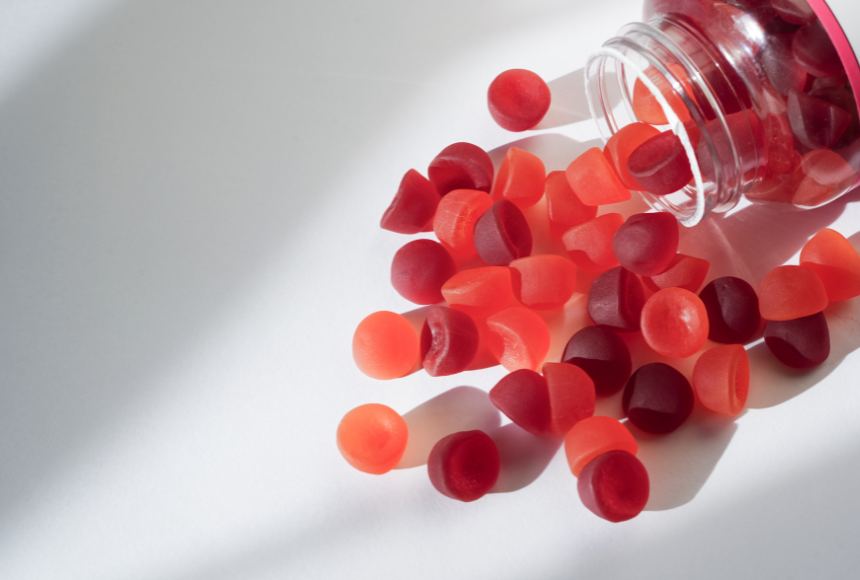Sustainability of Flaxseeds, Chia Seeds and Hemp Seeds:
Good for the Planet & Good for You
by: Tiny Sprouts Foods
Sustainability is a hot word in today’s market but what does it mean? As defined by the Environmental Protection Agency, sustainability is the ability to maintain or improve standards of living without damaging or depleting natural resources for present and future generations1. When this comes to food, it means consuming foods that are good for you and good for the planet. When seeds are grown, no damage is done to the air, soil, land, water, or forests, and animals are not directly or indirectly killed or harmed. Seeds like flaxseeds, chia seeds and hemp seeds are some of the most sustainable plant foods you can consume; not only do they provide an abundance of nutrients and health benefits for each person, but their production gives back to the environment in many ways. Read on to learn more.
What Makes Seeds Sustainable?
(1) Seeds Have a Low Water Footprint

Water footprint is a measure of how much water is consumed throughout the production of a food2. It is an important measure to understand as fresh water is a scarce resource and so its availability is limited yet its demand is growing2.
Consuming foods with lower water footprint, protects some of this limited water enabling us to stretch the supply further for the benefit of our planet and future generations. Water on our planet is a finite source. Once it’s gone its gone, and sadly its going faster than anyone could have imagined. Most seed plants like hemp, chia, and flax grow well in arid regions, require minimal irrigation, and are said to be drought-resistant crops7. Because they need little water to grow, their water footprint is relatively low. For example; hemp seed production uses 85 times less water to grow than beef production3! Even when compared to other plants foods like nuts, seeds win in the water footprint category as they use up to 20 times less water than nuts like almonds and pistachios need for growth.
(2) Seeds Have a Low Carbon Footprint

A carbon footprint measures the total greenhouse gas emissions caused directly and indirectly by a person, organization, event or product4. Food can account for up to 30% of a household’s carbon footprint, with food production making up the majority of those emissions4. Growing plants and trees help offset carbon emissions as they breathe in CO2 and coverts it into oxygen. The plants that hemp, chia and flaxseeds come from are considered ‘nature’s purifier’ as they make the air we breathe cleaner. In fact, hemp production is carbon negative, which means it absorbs more carbon from the atmosphere during its growth than is emitted by the equipment used to harvest, process and transport it6. Hemp is scientifically proven to absorb more CO2 per hectare than any forest or commercial crop5 which makes it a ‘carbon sink’. To reduce carbon emissions, some countries are forgoing planting trees and instead planting hemp plants since they grow significantly quicker (in months versus years), absorb more CO2 and use less water! Go hemp!
Carbon footprint is important because of the effect greenhouse gases have on the environment. These gases get trapped in the atmosphere, warming up the planet and causing climate change. Climate change is already having significant derogatory affects from causing mass fires to mass flooding and could eventually leave much of this world inhabitable.
One way to reduce carbon footprint is to eat less meat and more plants! Plant foods offer the same if not better nutrition than meat. For example, Tiny Sprouts Organic Hemp Hearts Boosters provides 3G of protein in a single tablespoon. Ounce for ounce it contains more protein than beef or chicken and without all the carbon emissions as well!
(3) Seeds Don't Require Pesticides or Chemicals For Growth

Seeds can be grown in almost any quality of soil and thrive in the wild. Their survival is not dependent on chemicals, and they require minimal if any pesticide use at all9! In fact, the essential oils in chia seeds are repellant to insects and other pests8,9! This is great for the environment as chemicals used in agriculture production have many detrimental effects on our planet.
While there may be little or no pesticide use on seed plants, at Tiny Sprouts Foods we still only offer organic seeds because it is safer than the conventional forms, and better for the environment. The difference between organic and natural/conventional seeds comes down to the soil. Organic soil must be free of synthetic fertilizer and pesticides for at least three years before it can be certified organic1.
(4) There Is No Wastage From A Seed Plant

Seed plants are so versatile in use that almost nothing from the plant is wasted. Traditionally, some seed plants have been used to produce many common household items. The flax plant for example, has been used as medicine, linen fabrics, oils, twines, ropes, and even briquettes for heating11.
The same goes for hemp, the hemp plant not only produces nutrient rich hemp seeds and hearts, but has also been used to make clothing, paper, bio-fuel and more9. In fact, clothing made from the hemp plant and flax plant is not only more durable but significantly better for the environment than the cotton crop which uses more water and half of the total pesticides used in the United States9,11! Fun fact - the first Levi’s blue jeans were made from hemp!
(5) Seed Crops Regenerate The Soil

Seed plants are regenerative crops which means they clean the soil they’re planted in. In fact, hemp acts as a natural vacuum cleaner accumulating heavy metals and other toxins from the soil before they enter surrounding groundwater13. Also, as stems and leaves of the plant fall, they decompose and naturally regenerate the soil with their nutrients.
Soil health is paramount when it comes to sustainability and saving our planet. Soil needs carbon and so will pull it from the environment, which reduces the carbon gases in the atmosphere that is responsible for climate change. The healthier the soil, the more carbon is removed from the atmosphere, and the more balance we begin to experience with climate. Unfortunately, conventional farming methods have destroyed so much of the Worlds top soil which is further contributing to the climate change issue on Earth12.
(6) Seed Crops Promote Regenerative Farming

Most seeds are annual crops and grow rather quickly after being planted. Regenerative farming requires rotating crops seasonally to maintain and even improve soil quality. Seeds promote this rotation allowing for richer, cleaner soil and greater crop yield.
Hemp is even seen as a ‘gateway crop’ for regenerative agriculture13. It harvests in only 120 days making it an ideal crop for rotation. Crop rotation is important. as it improves the soil's health, and increase nutrients available for crops, while also helping the environment by removing carbon dioxide from the atmosphere.
Why Is Sustainability Important?
Sustainability is important as it improves the quality of our lives and the lives of future generations. The Earth is our home, and we need to take care of it to ensure the survival and wellbeing of humankind. With the rapidly decreasing supply of freshwater to the greenhouse emissions and climate change, our planet is under a lot of pressure and asking for our help to sustain life for everyone and everything it supports. Making ethical and sustainable choices each day brings us one step forward in re-establishing balance in this world. At Tiny Sprouts Foods, we work hard everyday to be as sustainable as we possibly can. From delivering sustainable products (we love our seeds!), to working with sustainable suppliers and continuously minimizing our supply chain, we are committed to doing what we can for the betterment of the planet generations to come. Learn more at https://www.tinysproutsfoods.com


Tiny Sprouts Foods is a children's nutrition company focused on producing convenient, nutrient-rich products that offer functional health benefits to the developing child. They are committed to making every bite count through their debut range of Organic Superseed BoostersTM, which can easily be added to any food to boost nutritional content, support a child’s daily health needs, and give parents the peace of mind they deserve. Learn more at https://www.tinysproutsfoods.com.
Disclaimer: The information contained in this blog is based on the experience of the author and science-based research. It is not intended to replace medical advice or diagnosis from a physician or other medical provider. This blog is not intended as a substitute for a consultation with a physician or other healthcare provider. The author is not responsible for any adverse effects or consequences resulting from the use of any suggestions discussed in this blog. It is important to talk to your doctor or your child’s pediatrician prior to starting any new medications or supplements.
Sources:
- https://www.epa.gov/sustainability/learn-about-sustainability#what
- https://waterfootprint.org/en/water-footprint/frequently-asked-questions/#CP1
- https://consumerecology.com/hemp-hearts-carbon-footprint-environmental-impact/
- https://www.carbontrust.com/resources/carbon-footprinting-guide
- https://hemp-copenhagen.com/images/Hemp-cph-Carbon-sink.pdf
- https://ec.europa.eu/environment/forests/pdf/respondents-additional-inputs/European%20Industrial%20Hemp%20Association%20(EIHA).pdf
- https://link.springer.com/chapter/10.1007/978-3-319-16357-4_3
- https://gardenseason.com/benefits-of-chia-seeds/
- https://nationalhempassociation.org/hemp-faqs/
- https://www.usda.gov/media/blog/2012/03/22/organic-101-what-usda-organic-label-means#:~:text=Produce%20can%20be%20called%20organic,most%20synthetic%20fertilizers%20and%20pesticides
- https://baltic-flax.com/about/sustainability/
- https://climatechange.rutgers.edu/docman-list/affiliate-publications/446-healthy-soils-and-climate-change-final/file#:~:text=Following%20best%20management%20practices%20for,more%20resilient%20to%20climate%20change.&text=Soil%20is%20an%20ecosystem%20within,interacting%20with%20its%20abiotic%20environment
- https://weekly.regeneration.works/p/-hemp-the-new-gateway-crop-for-regenerative






